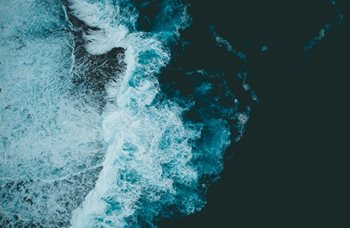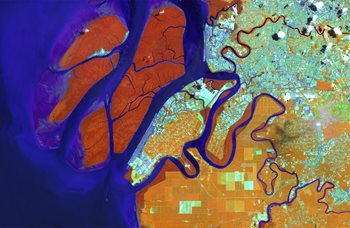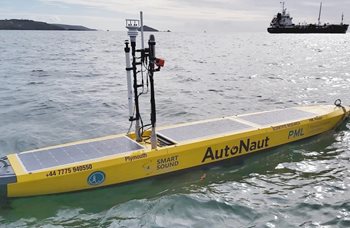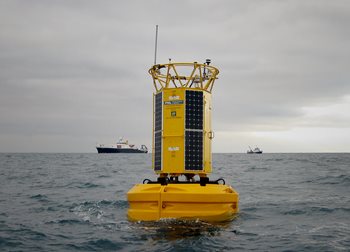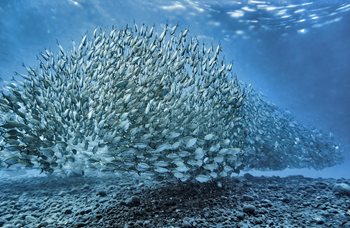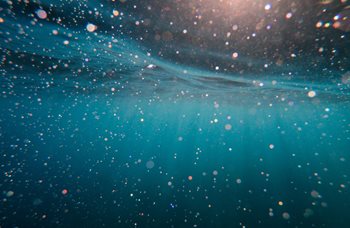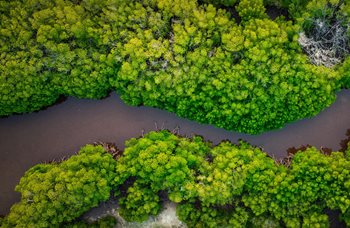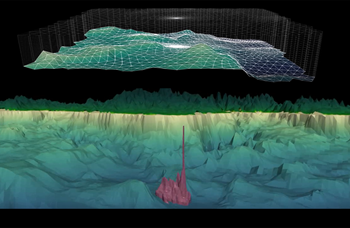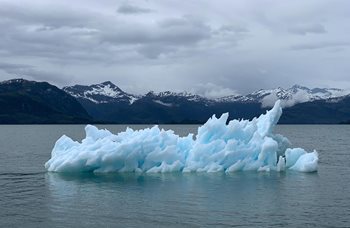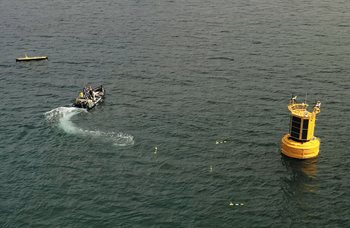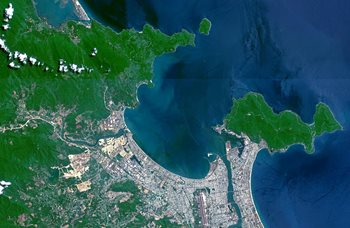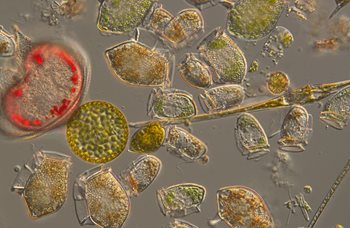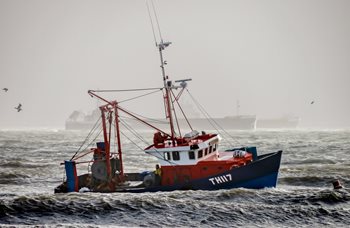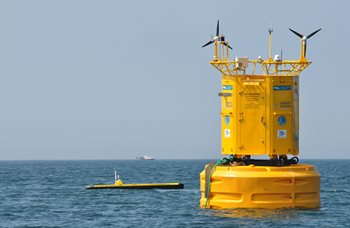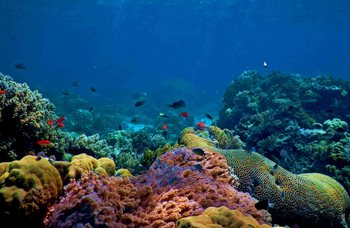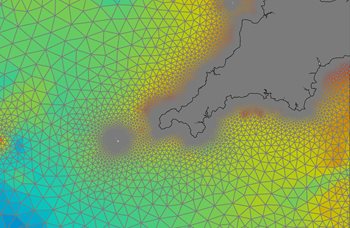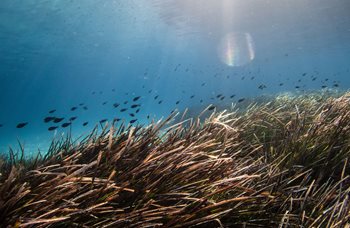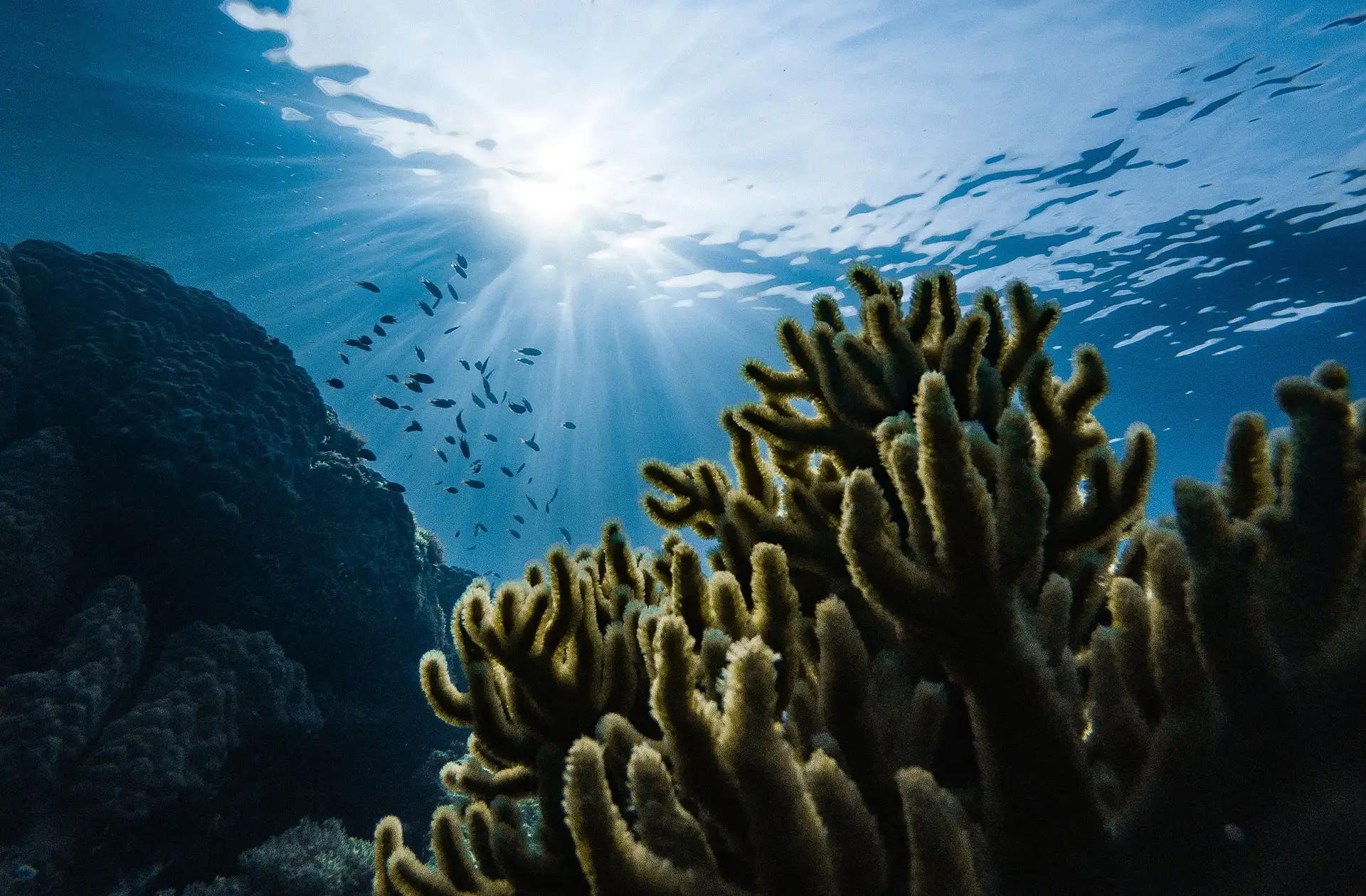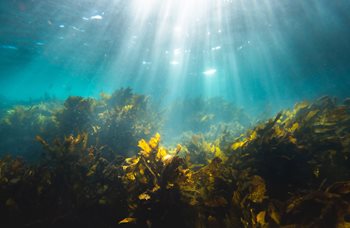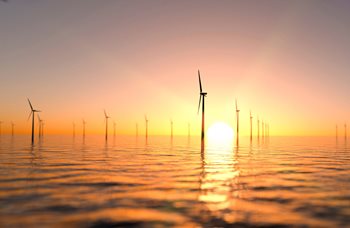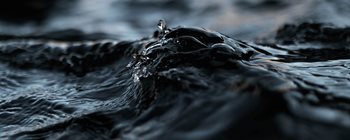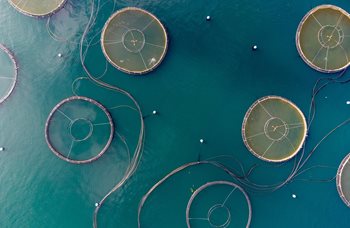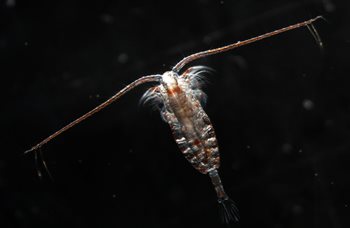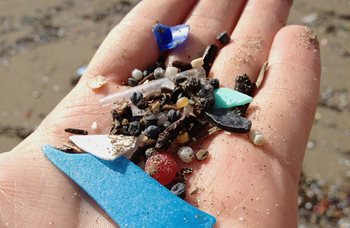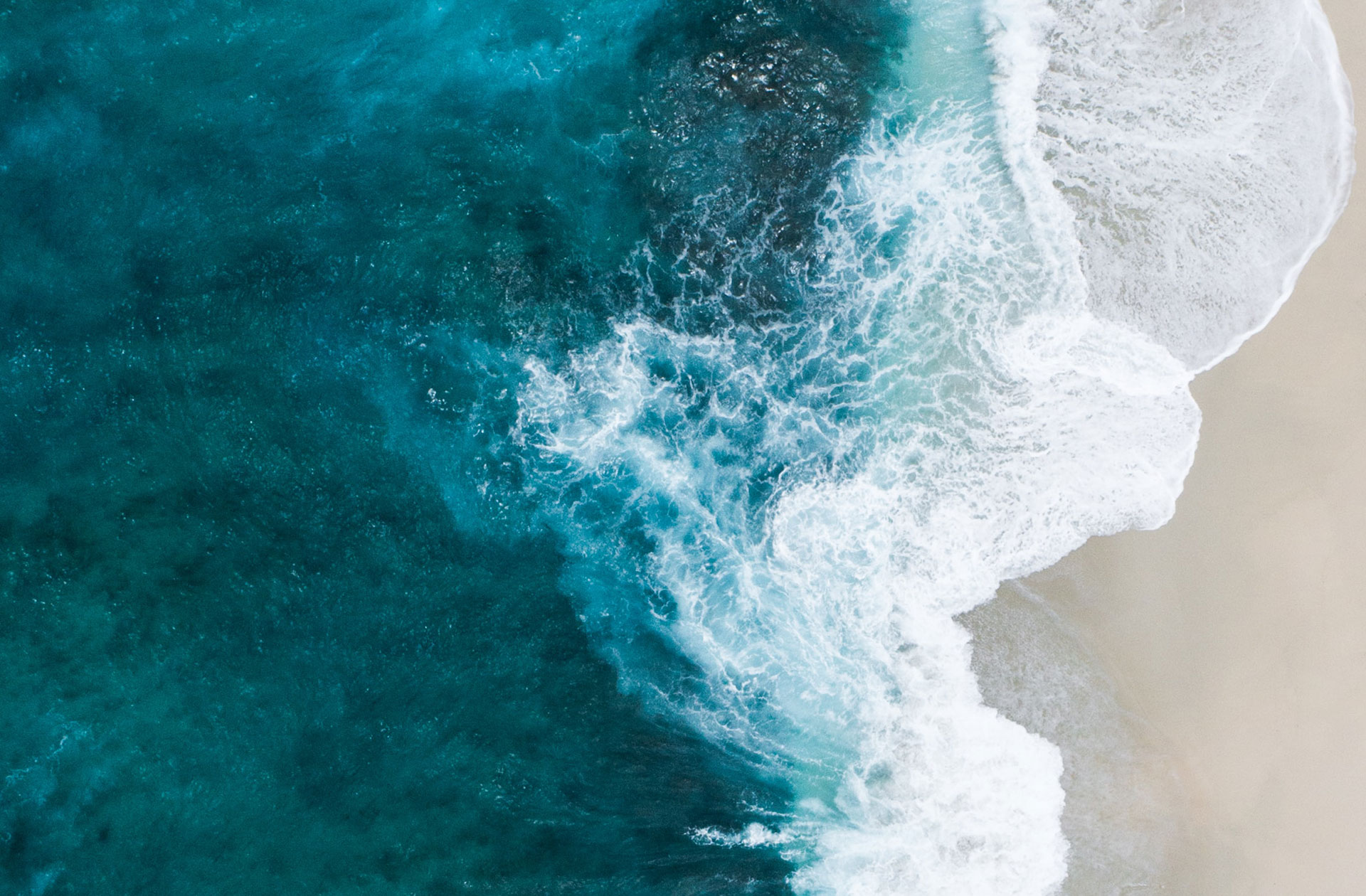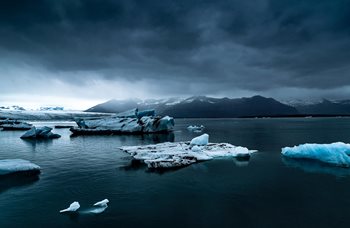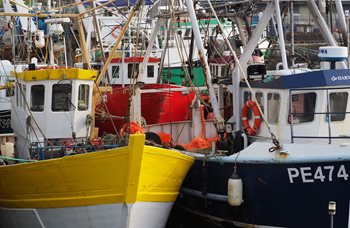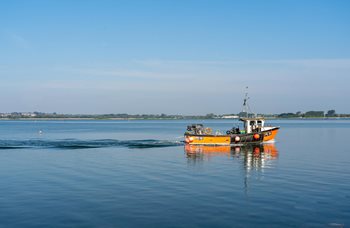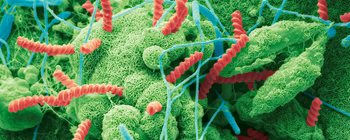Science Topic
Ocean acidification
The term ocean acidification is used to describe the ongoing decrease in ocean pH caused by human CO2 emissions, such as the burning of fossil fuels. This is having an adverse effect on many important marine species such as corals, oysters, crabs and plankton. Due to the unprecedented rate of acidification these vulnerable organisms may not have time to evolve mechanisms to cope with the changing chemistry of the ocean.
PML has been instrumental in developing the understanding of the effects of ocean acidification on the marine environment, since the term was first coined in 2003. Through laboratory and field experiments, observations and ecosystem modelling our research has shown how the chemistry of the ocean is changing; and what affect this is having on marine organisms, ecosystems and biodiversity as well as the society which depends on them.
PML is a founding partner of the Global Ocean Acidification Observing Network (GOA-ON) and delivering its North East Atlantic Hub which is co-ordinating ocean acidification monitoring efforts for the northeast Atlantic region, facilitating 12 countries to deliver their commitments towards UN Sustainable Development Goal (SDG) target 14.3. Minimize and address the impacts of ocean acidification, including through enhanced scientific cooperation at all levels. International co-operation to protect the marine environment of the northeast Atlantic is achieved through the OSPAR Convention and our experts represent GOA-ON on OSPAR’s Intersessional Correspondence Group on ocean acidification.
PML scientists are playing a key role in the UN Ocean Decade of Ocean Science for Sustainable Development through the Decade endorsed programme ‘Ocean Acidification Research for Sustainability’ (OARS) which is providing society with observational and scientific evidence needed to sustainably identify, monitor, mitigate and adapt to ocean acidification; from local to global scales. In addition, the PML Impact Team is helping OARS build its impact delivery through training and guidance.
One of our key ocean acidification research findings has been that the impact of ocean acidification on marine species is strongly dependent on the interaction with other stressors associated with global change, such as warming. We have also demonstrated that ocean acidification is having a marked effect upon ocean chemistry beyond the carbonate cycle, most notably the nitrogen cycle and the production of climate-relevant trace gases such as DMS and halocarbons.
We monitor ocean acidification utilising existing platforms, such as the Atlantic Meridional Transect (AMT) and the Western Channel Observatory (WCO). The freely available WCO dataset provides the longest running record of ocean acidification in the UK and forms part of the UK’s contribution to the UN Sustainable Development Goal indicator 14.3.1: Average marine acidity (pH) measured at agreed suite of representative sampling stations.
New autonomous platforms and moorings are increasing PML’s capability to monitor ocean acidification in the highly dynamic and complex near shore and coastal environments. These data underpin our current understanding of the interplay between the marine chemistry and biological processes.
Our researchers project future trends of ocean acidification using coupled marine biogeochemical models, with a particular focus on shelf sea environments where the natural variability makes the signal of ocean acidification less clear. Furthermore, they use models to explore the impacts of ocean acidification on marine ecosystems.
We are leading the way in developing techniques to assess ocean acidification using satellites, which will enable synoptic-scale monitoring on both global and regional scales with a relatively low-cost when compared to in situ measurements. This work is leading to improved forecasting and application for marine resources managers.
Our researchers have been raising awareness on ocean acidification and inspiring action at the highest political levels, culminating in ocean acidification research informing international emissions targets, with the significant inclusion of ocean ecosystems in the UN Paris Agreement and the development of the UN Sustainable Development Goal target 14.3: Minimize and address the impacts of ocean acidification, including through enhanced scientific cooperation at all levels.
In 2005, one of our prominent ocean acidification experts ensured ocean acidification was included for the first time in an Intergovernmental Panel on Climate Change (IPCC) Assessment Report. The IPCC is the UN body assessing the science related to climate and PML scientists have been playing key roles, such as Lead and Review Authors, in the development of the IPCC Assessment Reports and Special Reports for many years.
PML is an official observer organisation to the United Nations Framework Convention on Climate Change Conference of the Parties (UNFCCC COP) where we have provided evidence on ocean acidification since 2009, and have done similar at the UNFCCC Subsidiary Body for Scientific and Technological Advice (SBSTA) since 2006 as well as other for other UN initiatives/bodies such as the UN Conference on Sustainable Development, also known as Rio+20, the United Nations Convention on the Law of the Sea (UNCLOS) and the UN Ocean Conference.
You can read more about our contribution into enquiries and policy on our impact page.
Support ocean acidification research
PML Project pages
-
COMFORT. Our common future ocean in the Earth system - quantifying coupled cycles of carbon, oxygen, and nutrients for determining and achieving safe operating spaces with respect to tipping points
-
Coral Communities: Building Socio-Ecological Resilience to Coral Reef Degradation in the Islands of the Western Indian Ocean.
-
FOCUS: Future States of the global Coastal ocean: Understanding for Solutions
-
Mission Atlantic
-
North East Atlantic hub of the Global Ocean Acidification Observing Network
-
Oceanus
-
Western Channel Observatory (WCO)
Other projects
NE Atlantic OA Hub
PML coordinate the Northeast Atlantic OA hub that forms part of GOA-ON. The key role of the hub is to promote a common methodology for recording measurements, encourage submission to National Data Centres and cataloguing of this data on a central global portal to map effort and identify gaps. This ensures that member states fulfil their obligations under SDG14.3 by providing the measurements needed to meet this target.
Ocean Acidification Research for Sustainability (OARS)
PML provide leadership and support to this important UN Decade of Ocean Science for Sustainable Development programme.
GOA-ON Biological working group
OSPAR Intersessional Correspondence Group on Ocean Acidification
Capabilities
- Mesocosm experiments
- Time series observations (WCO and AMT)
- High quality carbonate chemistry measurements
- Modelling
- Satellite remote sensing for OA
Selected publications
Williamson, P; Pörtner, HO; Widdicombe, S; Gattuso, JP; 2021. Ideas and Perspectives: When ocean acidification experiments are not the same, reproducibility is not tested. Biogeosciences.
Vargas, CA; Lagos, NA; Lardies, MA; Duarte, C; Manríquez, PH; Aguilera, V; Broitman, BR, Widdicombe, S; Dupont, S; 2017. Species-specific responses to ocean acidification should account for local adaptation and adaptive plasticity. Nature Ecology and Evolution.
Calosi, P; Melatunan, S; Turner, LM; Artioli, Y; Davidson, RL; Byrne, JJ; Viant, MR; Widdicombe, S; Rundle, SD; 2017. Regional adaptation defines sensitivity to future ocean acidification. Nature Communications.
Sunday, JM; Fabricius, KE; Kroeker, KJ; Anderson, KM; Brown, NE; Barry, JP; Connell, SD; Dupont, S; Gaylord, B; Hall-Spencer, JM; Klinger, T; Milazzo, M; Munday, PL; Russell, BM; Sanford, E; Thiyagarajan, V; Vaughan, MLH; Widdicombe, S; Harley, CDG; 2017. Ocean acidification can mediate biodiversity shifts by changing biogenic habitat. Nature Climate Change.
People who work in this area of research
Dr Yuri Artioli
Marine Ecosystem Modeller
yuti@pml.ac.uk
Professor Jerry Blackford
Head of Science: Marine Systems Modelling
jcb@pml.ac.uk
Professor Helen Findlay
Biological Oceanographer
hefi@pml.ac.uk
Amy Kenworthy
Ocean Acidification Research for Sustainability (OARS) Project Manager
Professor Steve Widdicombe
Director of Science and Deputy Chief Executive





